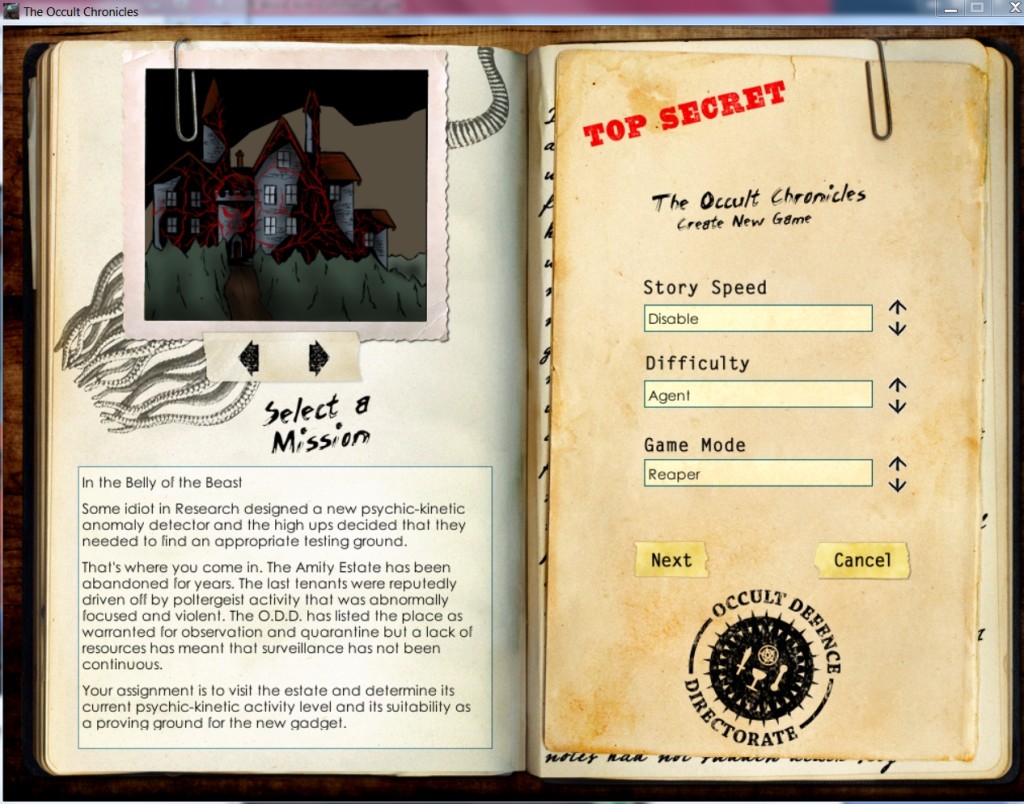I am very pleased to publish an email interview with Vic Davis, the indie game designer behind Armageddon Empires (one of my favourite strategy games), Solium Infernum, and Six-Gun Saga. Read on for our conversation about Vic’s latest title, roguelike/board game hybrid Occult Chronicles, in which we discuss his inspirations, his lessons learned, the challenges of indie development, and more.
Peter Sahui: Hello Vic – welcome to the site! Occult Chronicles is your fourth game, after Armageddon Empires, Solium Infernum, and Six-Gun Saga. What lessons from your previous games came in handy for this project?
Vic Davis: Well from a technical standpoint I have over a decade of experience with the development environment that I use (Adobe Director). I’ve also got a huge library of code for doing everything from creating drop down menus to path finding for any AI. On the design side it has helped a lot to have shipped previous games. Even though attempting a rogue like is a new direction for me, I was able to draw upon the experience that I had gained while designing turn based strategy games. In the end my new game is really just an adventure strategy game so it shares a lot of the same elements.
Peter: Compared to Armageddon Empires, random chance seems to play a much bigger role in Occult Chronicles. What made you emphasise luck, and how did you balance it?
Vic: Yeah, without any of the map or positional elements that most TBS games offer, the conflict resolution elements really pop out to the fore. And Occult Chronicles has a lot of rpg baggage so you have this paradigm of stats/abilities being used to influence some probabilistic outcome matrix. Calling it luck though is something of a misnomer in my opinion. Chance plays a big part but I tried to craft a system of mechanics where smart playing could nudge the scales in your direction. In the Occult Chronicles you need to weigh risk versus reward when you encounter various “challenges” in the game. You are usually given various options that key off of your attributes so it might be better to talk to an encounter rather than attack it. Similarly, sometimes it’s better to run away or postpone a choice. I do admit that the way I designed the results phase for the game where you basically pick random cards to determine your rewards or penalties for an encounter, does serve to really accentuate the idea that the game is really random. And I’m not sure random is really bad especially in a rogue like. It’s something that is demanded for the map generation and figures prominently in many other aspects like what you encounter on a level or whether you hit it. Coping with the random elements is really supposed to be part of the fun. But then so is dying a lot so go figure.
